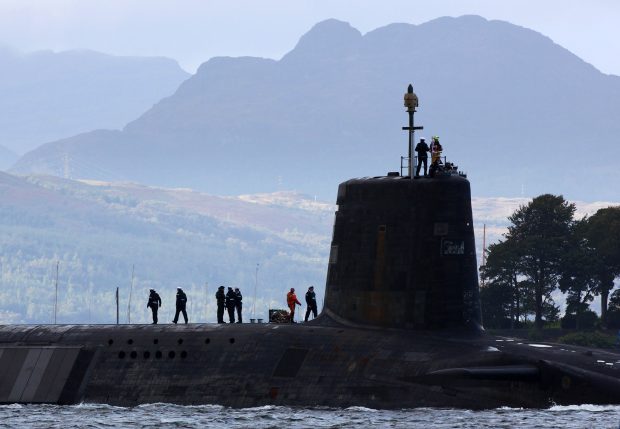One of the first things Theresa May will have been briefed on when she took over as Prime Minister last week is the protocol for firing nuclear weapons. She’ll have been handed the nuclear codes in the clearest demonstration, if she doubted it before, that she really is in charge. And today, in her first Commons test as PM, she’ll be saying it would be a ‘gross irresponsibility’ to ditch Trident. She’ll also go on to say ‘abandoning’ our ‘ultimate safeguard’ would be a ‘reckless gamble’. In truth, she has little to worry about as to whether the vote will go through: barring a big upset, the Government will win comfortably and Trident will be renewed.
What will prove more interesting, though, is what happens on the benches opposite Theresa May. Unity and the Labour party aren’t words which go hand-in-hand at the moment, and it’s no surprise to hear that Labour is also split on Trident. Jeremy Corbyn has long been opposed to nuclear weapons, but his party will have a free vote on the issue today. The Tories have been accused of trying to cause trouble with today’s Trident vote. For one, Emily Thornberry has said she’ll abstain to avoid becoming caught up in ‘shameful game playing’ by the Government. But not all Labour MPs agree: Tom Watson, for instance, has said it would be unacceptable for his colleagues to abstain. Another day, another Labour row, you may think. But Trident is particularly divisive for the Labour party and it’s worth taking a look back at Labour’s manifesto from last year to see why.
In 2015, Labour said it was ‘committed to a minimal, credible, independent nuclear capability, delivered through a continuous at-sea deterrent’. The wording is remarkably similar to that on today’s vote, which describes Trident as ‘the UK’s independent minimum credible nuclear deterrent, based on a Continuous at Sea Deterrence posture’. So if Labour’s manifesto is anything to go on, today’s Trident vote should be straightforward: the party should support it. Instead, we’re seeing how the party’s leadership is unilaterally changing Labour’s policy on this – and further widening the gap between those on the frontbench and those sitting behind Jeremy Corbyn, who will be able to say in voting for Trident that they are sticking up for official party policy.







Comments